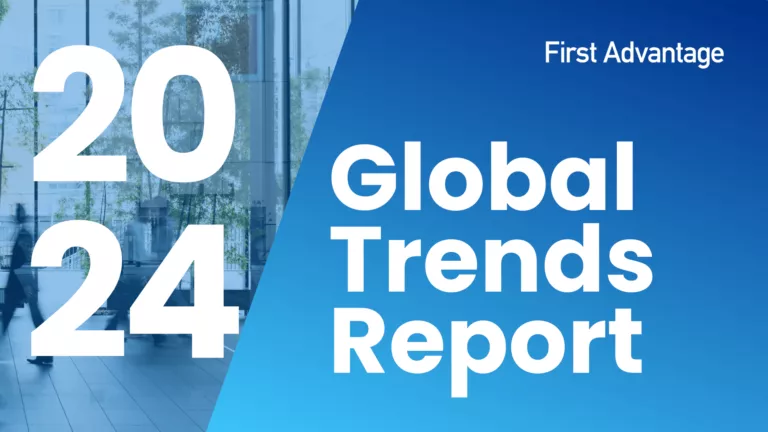JOSEPHINE KENNEY
The tsunami of information available on medical and legalized/recreational marijuana notwithstanding, it is important to keep in mind that information in this area can and does shift rapidly. Such is particularly the case in the State of Maine, where residents like myself, are having a challenge obtaining current and accurate information on the law, in particular its practical impacts for employers conducting workplace drug testing in Maine.
The following two links will bring you and your legal counsel to the latest information on Maine’s Marijuana Legalization law:
In Maine, the Maine Department of Labor, Bureau of Labor Standards sets the requirements for employer workplace drug testing programs in compliance with Maine law. Information on program requirements, including any requirements that may arise from Maine’s Marijuana Legalization Act, can be reasonably expected to be documented on the Maine Department of Labor, Bureau of Labor Standards Website at http://www.maine.gov/labor/labor_laws/substance_abuse_testing/index.html or through direct communication by that Department to employers that are authorized to conduct workplace drug testing as a result of having a policy on file as approved by the Maine Department of Labor, Bureau of Labor Standards. As clearly stated on the Website:
Employers wanting to enact a drug testing program must have a policy approved by the Maine Department of Labor, Bureau of Labor Standards, with one exception.
A note on Maine employers with federally covered employees:
If an employer has any employees who are subject to a federally mandated drug-and-alcohol testing program working in Maine, that employer may expand the federal testing pool to cover all employees and forego a policy with the State.http://www.maine.gov/labor/labor_laws/substance_abuse_testing/index.html
Retrieved, February 8, 2018.
Additional information and updates on employer substance abuse testing policies in Maine can be found at:
http://www.maine.gov/labor/labor_laws/substance_abuse_testing/applicant_model_policies.html , Retrieved, February 8, 2018.
This writer can confirm that guidance on Maine’s legalization law, the Marijuana Legalization Act Section 1. 7 MRSA c. 417 is not yet available on the Maine Department of Labor Website http://www.maine.gov/labor/labor_laws/substance_abuse_testing/ .
Although Maine’s Marijuana Legalization Act went into effect on January 30, 2017, on January 27, 2017 H.P. 66-L.D. 88, An Act To Delay the Implementation of Certain Portions of the Marijuana Legalization Act was approved by the Governor of Maine. First Advantage shared this development by blog in February of 2017. As part of that Act, there was a moratorium that delayed enforcement of the challenging employment related provisions of the law until February 1, 2018.
Those employment law provisions are now in effect and are as follows:
§2454. Construction
1. Relation to the Maine Medical Use of Marijuana Act. This chapter may not be construed to limit any privileges or rights of a qualifying patient, primary caregiver, registered or otherwise, or registered dispensary under the Maine Medical Use of Marijuana Act.
2. Employment policies. This chapter may not be construed to require an employer to permit or accommodate the use, consumption, possession, trade, display, transportation, sale or growing of cannabis in the workplace. This chapter does not affect the ability of employers to enact and enforce workplace policies restricting the use of marijuana by employees or to discipline employees who are under the influence of marijuana in the workplace.
3. School, employer or landlord may not discriminate. A school, employer or landlord may not refuse to enroll or employ or lease to or otherwise penalize a person 21 years of age or older solely for that person’s consuming marijuana outside of the school’s, employer’s or landlord’s property.
4. Person may not be denied parental rights and responsibilities or contact with a minor child. A person may not be denied parental rights and responsibilities with respect to or contact with a minor child as a result of acting in accordance with this chapter, unless the person’s conduct is contrary to the best interest of the minor child as set out in Title 19-A, section 1653, subsection 3.
The foregoing are the sections of the law that employers testing in Maine should review with their legal counsel in the context of their legal risk tolerance and risk mitigation strategy.
Last year, this writer was informed by a Maine official that when terminating an employee in Maine,” use of recreational marijuana may or may not be regarded as misconduct; that there needs to be a clear relationship/nexus to employment. Employers need to have clear policies and communicate them to employees.” Beyond this informal comment, currently no official guidance has been provided concerning the impact of the Maine Marijuana Legalization Act on workplace drug testing programs and policies. The Maine Department of Labor, Bureau of Labor Standard Website continues to include marijuana as a substance that can be tested in an employer’s approved workplace testing program and the posted Maine Policy templates continue to include marijuana as a substance that can be tested.
In e-mail discussion with an official at the Department of Labor on February 7, 2018, the official stated that “…no changes have been made to the Model Policies because I haven’t been told to yet.”
The writer also learned from that same Maine official that a press release is expected to go out that may provide clarification. Whether that press release will clear up the current confusion in the State of Maine for employers conducting testing in Maine remains to be seen.
In the meantime, although it is strongly recommended that employers testing in Maine consult with their legal counsel to determine the best course of action to take while the practical impacts of Maine’s Recreational Marijuana law are in flight, it is important to note that the plain language in the law:
does not affect the ability of employers to enact and enforce workplace policies restricting the use of marijuana by employees or to discipline employees who are under the influence of marijuana in the workplace
Additionally, even the anti-discrimination provision includes the word “solely” relative to the provision against discriminating against a person for consuming marijuana outside of the employer’s property.
The foregoing blog is not offered as legal or scientific advice but is instead offered for informational purposes. First Advantage is not a law firm or medical provider and does not offer legal, medical or scientific advice. The following article is therefore not intended as a substitute for the legal advice of an attorney knowledgeable of the user’s individual circumstances or to provide scientific advice. First Advantage makes no assurances regarding the accuracy, completeness, currency or utility of the following information. Product related, legislative, regulatory and case law developments regularly impact on general research and the science in this area is evolving rapidly.


